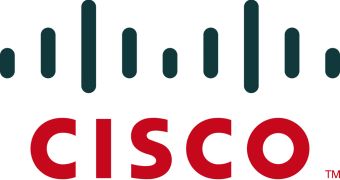Cisco Edition of OpenStack, a packaged and tested version of the OpenStack Folsom release with open source components that delivers automated deployment and additional functionality such as high availability, monitoring, and Cisco-enabled networking through Quantum, has just been made available by Cisco.
According to the developers, Cisco has been an active participant in OpenStack since the early days of the Quantum project and during the Diablo Summit in Santa Clara in April 2012 Cisco merged it’s own NaaS proposal with another vendor. The Cisco Edition of OpenStack is tested on Ubuntu 12.04 LTS, with the Cisco Nexus family of switches and Cisco UCS C Series servers.
Users don't actually need to run Cisco Edition of OpenStack on Cisco hardware, which is actually really good news (still, it is validated on this hardware configuration).
The Cisco Quantum Plugin comes with support for L2 segmentation using VLAN and can work with Open vSwitch and Cisco Nexus sub-plugin. In the near future, Red Hat Enterprise Linux and CentOS might be validate as the base Linux version.
Cisco also provides instruction on how to build the environment. First off all, you will have to build an ubuntu-based linux server with openssh-server enabled. The rest of the packages and dependencies will be installed automatically by puppet.
Add the necessary packages to have puppet running and cisco edition enabled:
sudo apt-get update
Additional packages will be needed:
sudo apt-get install -y python-software-properties sudo apt-get install ntp puppet git ipmitool -y
Get the Cisco Edition packages from the following repo:
git clone --recursive -b folsom https://github.com/CiscoSystems/puppet-root.git ~/folsom/
Copy all the content under ~/folsom/modules/ to /etc/puppet/modules/
cp -r ~/folsom/modules/ /etc/puppet/
Optional: If you have your set up behind a proxy, you should export your proxy configuration: export http_proxy=http://proxy.esl.cisco.com:80 export https_proxy=https://proxy.esl.cisco.com:80 Optional: If your set up is in a private network and your build node will act as proxy server, you need to add the corresponding NAT and forwarding configuration.
iptables --table nat --append POSTROUTING --out-interface eth0 -j MASQUERADE iptables --append FORWARD --in-interface eth1 -j ACCEPT echo 1 > /proc/sys/net/ipv4/ip_forward
That is all you will need. Further instructions can be found on the official website of Cisco Edition of OpenStack.

 14 DAY TRIAL //
14 DAY TRIAL //